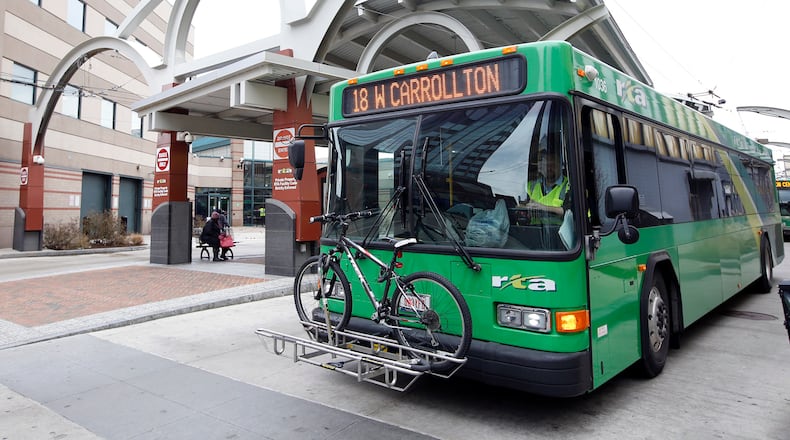Mark Donaghy said he would not speak for the Amalgamated Transit Union, but said RTA was informed the proposal failed “by a narrow margin.” The public agency’s CEO did not say if further negotiations with ATU Local 1385 were planned.
The union’s president, Gerald Duncan, and Gary Johnson Sr., of the union’s international office, and a representative from the State Employment Relations Board did not immediately respond to requests for comment.
A copy of the RTA’s final proposal obtained by the Dayton Daily News and WHIO shows RTA’s proposal changed during the most recent negotiation between the parties.
MORE: Experts suggest resetting tone as Greater Dayton RTA, union resume talks
In October, RTA proposed each full-time employee pay 20 percent of the total cost of the health care plan. Under the October proposal, employees actively enrolled in RTA’s wellness incentive plan and meet its requirements would pay 10 percent of the total cost of the health care plan if fully insured, or the premium equivalent rate defined each year by RTA if self-funded for a single, one plus one, or family contract.
Under the January proposal, RTA added language proposing that employees actively enrolled in the wellness plan and who meet the plan’s requirements will be eligible each plan year for a matching contribution program for their health savings accounts. Under that proposal, RTA would match dollar-for-dollar employee deferred savings up to $150 for a single person and up to $300 for a one-plus-one or family contract.
RTA executives and union leaders met downtown Tuesday turbulence at both RTA and ATU. After publicly floating the possibility of a strike in December, union members elected a new president to represent them at the negotiating table. Meanwhile, RTA this month announced riders will face higher fares and fewer routes as the agency faces a loss of $4.6 million in sales tax revenue.
About the Author
